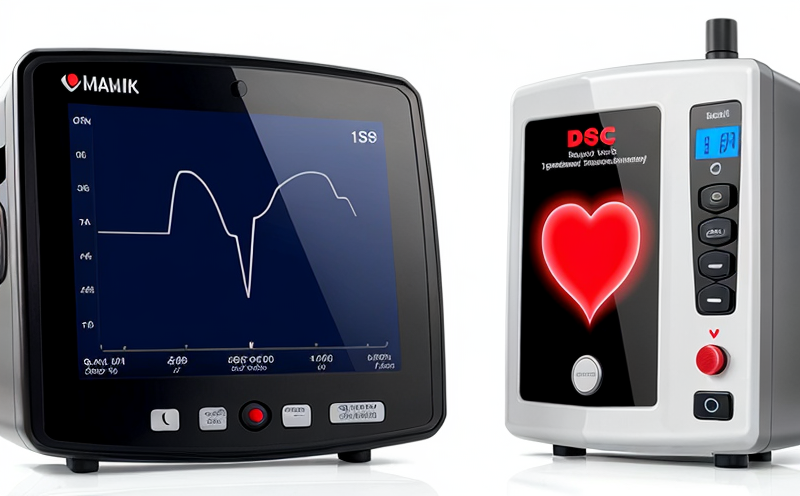ISO 7198 Vascular Prosthesis Suture Retention Strength Testing
The ISO 7198 standard is a crucial guideline for evaluating the suture retention strength of vascular prostheses. This test ensures that the sutures used in medical devices maintain their integrity under stress, which is paramount to patient safety and successful surgical outcomes. The test involves subjecting the sutures to tensile loading until failure occurs or a specified load limit is reached. Understanding the nuances of this testing method can significantly aid quality managers, compliance officers, R&D engineers, and procurement teams in making informed decisions about their products.
The process begins with careful selection and preparation of the vascular prosthesis sample. The specimen must be representative of the intended use and should follow specific dimensions outlined by ISO 7198. Once prepared, sutures are attached to the device using a technique that mimics actual surgical procedures as closely as possible.
Testing is conducted in a controlled environment to ensure consistent results. Specimens are mounted on an appropriate fixture that allows for accurate measurement of force and displacement during the test. The testing machine applies incremental loads until failure or up to a predetermined limit, depending on the specific requirements set forth by ISO 7198.
After the test is completed, detailed analysis of the data collected is performed. This includes examining the load-deflection curve, peak force recorded at failure, and other relevant parameters that provide insights into the strength characteristics of the sutures. These results are then compared against established standards to ensure compliance with regulatory requirements.
The importance of this test cannot be overstated in ensuring patient safety and device efficacy. By adhering strictly to ISO 7198 guidelines, manufacturers can demonstrate adherence to international best practices, thereby enhancing their reputation and marketability. Furthermore, consistent application of these tests allows for continuous improvement in product design and manufacturing processes.
In summary, the ISO 7198 Vascular Prosthesis Suture Retention Strength Test is an essential procedure that guarantees the reliability and safety of medical devices used during surgical procedures. Its rigorous methodology ensures that even minor flaws can be identified early on, preventing potentially harmful outcomes for patients.
Why It Matters
The integrity of the suture materials in vascular prostheses is critical to ensuring successful surgeries and long-term patient health. Any weakness or failure could lead to complications such as infections, leaks, or other adverse effects post-operation. Therefore, thorough testing according to ISO 7198 standards is not just a compliance requirement but also a commitment to quality and patient safety.
The reliability of the test results directly impacts how well medical devices perform in real-world conditions. Accurate measurement ensures that products meet stringent quality benchmarks, which ultimately leads to better clinical outcomes for patients who rely on these technologies. In addition, consistent adherence to these standards fosters trust among healthcare providers and regulatory bodies.
From a broader perspective, reliable testing practices contribute positively towards advancing medical science by providing valuable insights into material behavior under stress conditions. Such knowledge enables continuous innovation in developing safer and more effective treatments for cardiovascular diseases.
Why Choose This Test
Selecting the ISO 7198 Vascular Prosthesis Suture Retention Strength Testing is advantageous due to its stringent requirements that focus on ensuring product safety and efficacy. Compliance with this standard demonstrates a company's commitment to maintaining high standards of quality control throughout all stages of production, from initial design through final assembly.
One significant advantage of choosing this test lies in the detailed guidelines provided by ISO 7198 which cover every aspect necessary for accurate testing. This includes clear instructions on specimen preparation, mounting methods, and loading protocols—all designed to minimize variables that might affect outcome reliability. These comprehensive specifications help standardize results across different laboratories worldwide, facilitating easier collaboration between industry partners.
Another key benefit is the enhanced credibility gained by complying with internationally recognized standards like ISO 7198. When healthcare providers see your products meet these rigorous criteria, they are more likely to trust them and recommend them for use in their practices or institutions. Additionally, successful completion of this test can open doors to new markets where adherence to specific international regulations is mandatory.
Lastly, investing time into ensuring compliance with ISO 7198 helps protect your brand reputation by showcasing a dedication to excellence in manufacturing processes. In today’s competitive market place, consumers increasingly value transparency regarding how their products are made and tested; thus having an independently verified quality assurance process like this adds significant value.
Competitive Advantage and Market Impact
The ISO 7198 Vascular Prosthesis Suture Retention Strength Testing offers significant competitive advantages that can set a company apart in the medical device industry. By demonstrating commitment to quality assurance through rigorous testing, companies not only meet regulatory requirements but also establish themselves as leaders in innovation and safety.
One major advantage is increased market access. Many countries require adherence to international standards such as ISO 7198 when approving new medical devices for sale within their borders. Compliance with these standards opens doors to larger markets, providing opportunities for growth and expansion.
Achieving this certification can also enhance brand reputation among healthcare providers who prioritize the safety and efficacy of the products they use. When your company’s commitment to high-quality manufacturing processes is recognized through independent verification, it builds trust and credibility with potential customers.
In today’s highly competitive landscape, differentiation is key to standing out from competitors. By successfully completing this test, you are positioning yourself as a leader in quality assurance practices within the medical device industry. This can help attract top talent, strengthen partnerships with suppliers and distributors, and ultimately lead to increased sales and market share.
Moreover, continuous improvement based on feedback from these tests allows companies to stay ahead of competitors by identifying areas for enhancement early on. Staying current with evolving standards ensures that your products remain relevant in an ever-changing regulatory environment.





